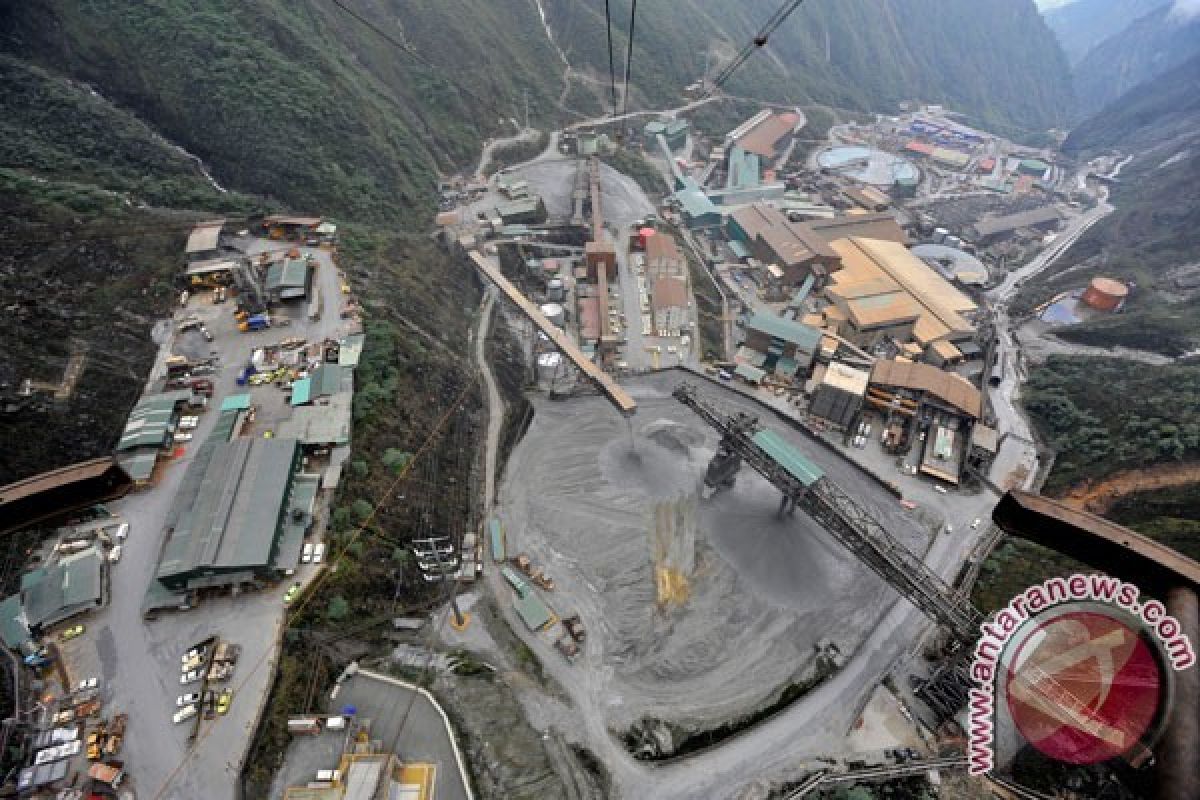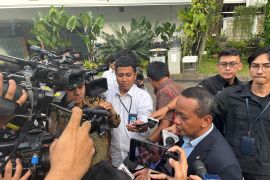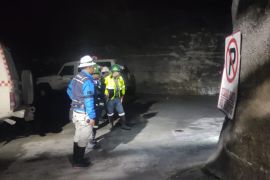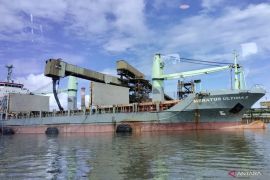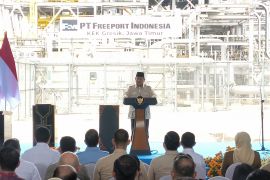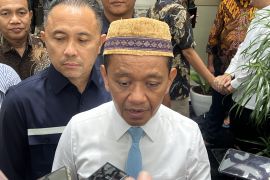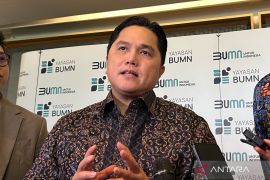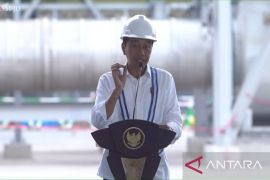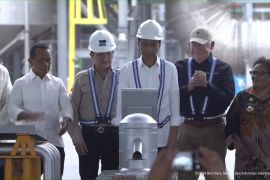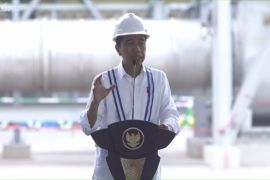The Ministry of Energy and Mineral Resources (ESDM) has issued a recommendation for PT Freeport to export raw minerals for a period of one year. However, according to the Ministry of Trade, PT Freeport has yet to submit application for the export agreement letter (SPE).
Based on the recommendation, Freeport is allowed to export 1,113,105 wet metric tons of copper concentrates. The permit allows it to carry out exports from Feb 17, 2017 to Feb 16, 2018.
According to Finance Minister Sri Mulyani, the reluctance of Freeport to carry out the export of copper concentrates when it is offered an option could have negative impact on its performance in the long run.
"Freeport is a public company; if it stops (exports), its stocks will fall. So, in this case, no party will lose or win," Mulyani stated in Jakarta on Wednesday.
The Indonesian government is still continuing its negotiation process with Freeport to seek the best solution for the national economy and for the continuation of Freeports investment in Indonesia.
"We can mutually look at facts contained in the Work of Contract (WoC) and those in the mining law. Since it is difficult to agree to it, the best option indeed is to safeguard our common interest," Mulyani added.
PT Freeport Indonesias parent company Freeport McMoRan Inc, said it would continue to operate in the country despite disagreement on its contract status with the government of Indonesia.
"We are committed to staying in Indonesia. This is an important resources for Freeport, also an important object for the government of Indonesia and Papua," says President and CEO of Freeport McMoRan Inc Richard C. Adkerson in Jakarta on Monday.
PT Freeport Indonesia has large copper and gold mines in the countrys easternmost regions of Papua, but now , the company has stopped operation as it is not allowed to continue export its copper concentrate over contract disagreement.
In 2009, the government had taken a decision to ban the export of raw minerals and made it mandatory for mining companies to build smelters. It decided to ban the export of unprocessed mineral ores as of January 2014 in a bid to encourage miners to process ore domestically.
However, after protest from the industry, the implementation of the ban was pushed back to January 11, 2017, to give an opportunity to mining companies to build smelters.
Recently, the government issued Government Regulation (PP) No. 1 of 2017 necessitates mining companies to change their contract of work (CoW) status to a special mining business license (IUPK), if they want to continue exporting concentrates. But they are given a five year deadline to build smelters.
Freeport has called for applying old regulations that were used when it was operating under a CoW status. Energy and Mineral Resources Minister Ignatius Jonan however noted that if it changes the status into an IUPK, several provisions (of the CoW) will also be altered.
"If (the status of a company) is changed into an IUPK, it will have many provisions. Let the finance minister review which old regulations can be used as this falls under the domain of the tax law similar to the regional government laws, levies, and others," Minister Ignatius Jonan remarked.
It was previously reported that Freeport claimed it had not yet reached a common ground with the government on the change of status from CoW to an IUPK. "We are awaiting a temporary IUPK to carry out exports (of raw minerals), but the government has not yet issued a permit to us," Freeport spokesman Riza Pratama stated after a hearing with the House of Representatives in Jakarta on Thursday (Feb 9).
According to CEO of Freeport McMoRan Inc Richard C. Adkerson, the U.S. mining giant had invested US$12 billion and is investing US$15 billion in Indonesia providing jobs for 32,000 Indonesians.
From 1992 to 2015, distribution of direct financial benefits between Indonesia and Freeport McMoran (FCX) are 60 percent for Indonesia (from taxes, royalties and dividends), totaled at US$16.5 billion, and 40 percent for FCX (dividends) with a total of US$10.8 billion.
"The taxes, royalty and dividend to be paid to the government in the future until 2041 is estimated to exceed US$40 billion," he said.
The Indonesian Chamber of Commerce and Industry (Kadin) said that Freeport contributed to more than 90 percent of the regional gross domestic product (GDP) of Mimika District and about 37 percent of Papua Provinces GDP.
Therefore, Deputy Chairman of Kadin for eastern Indonesia affairs Andi Rukman Karumpa asked to manage the Freeport issues well, so that it would not become counterproductive.
"The issue of PT Freeport should be properly managed, in a measured manner, and with a clear target," Karumpa said in Jakarta on Wednesday.
According to him, the turmoil between countries and some major corporations such as Freeport is a common one, such as the dispute between Aramco and the Saudi Arabian government in the past.
As a result, Aramco fell into the hands of the Saudi government, he stated.
"Contract dispute with multinational companies is common, but there should be measurable goals. The volatility is managed, so that it can be more productive in the long run or short term," he noted.
He remarked that Kadin supports the governments firmness against PT Freeport, because the enterprise is considered to have continued stalling its obligation to build smelters in the country.
Freeport also left the impression that it always tried to dictate its will on the government. "It (Freeport) met stubborn Minister Jonan who does not want to be dictated," he remarked.
However, Karumpa reminded that this issue would be managed well, because it affects the economy in Papua as well.
(A014/INE)
EDITED BY INE
(A014/KR-BSR/A014)
Reporter: Andi Abdussalam
Editor: Jafar M Sidik
Copyright © ANTARA 2017
